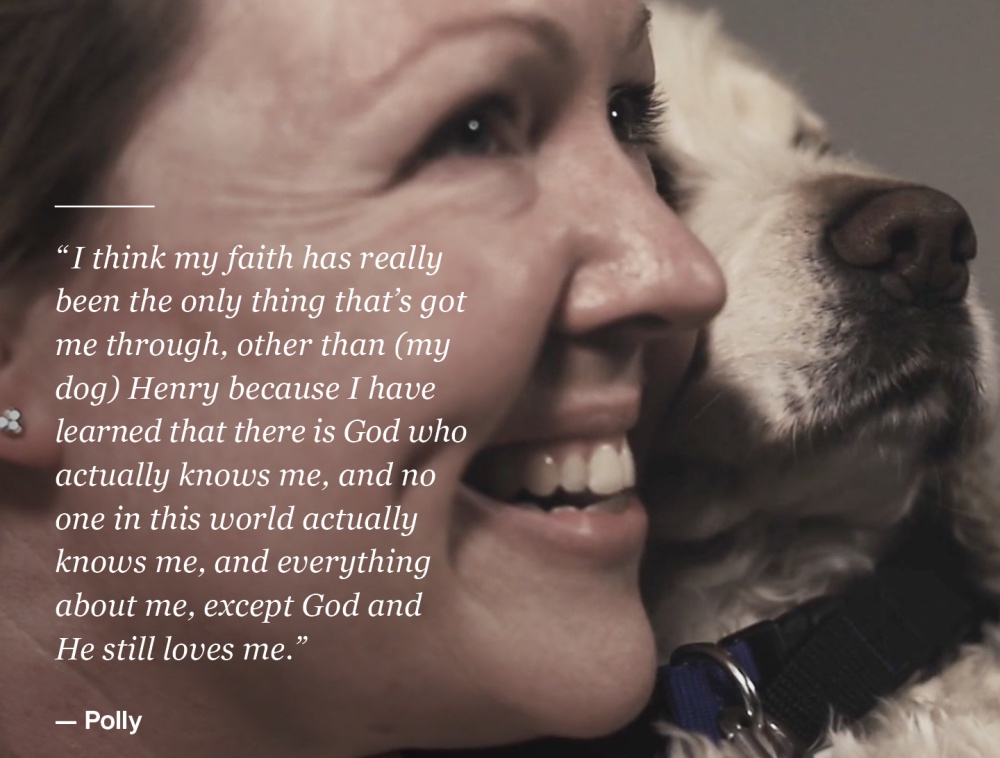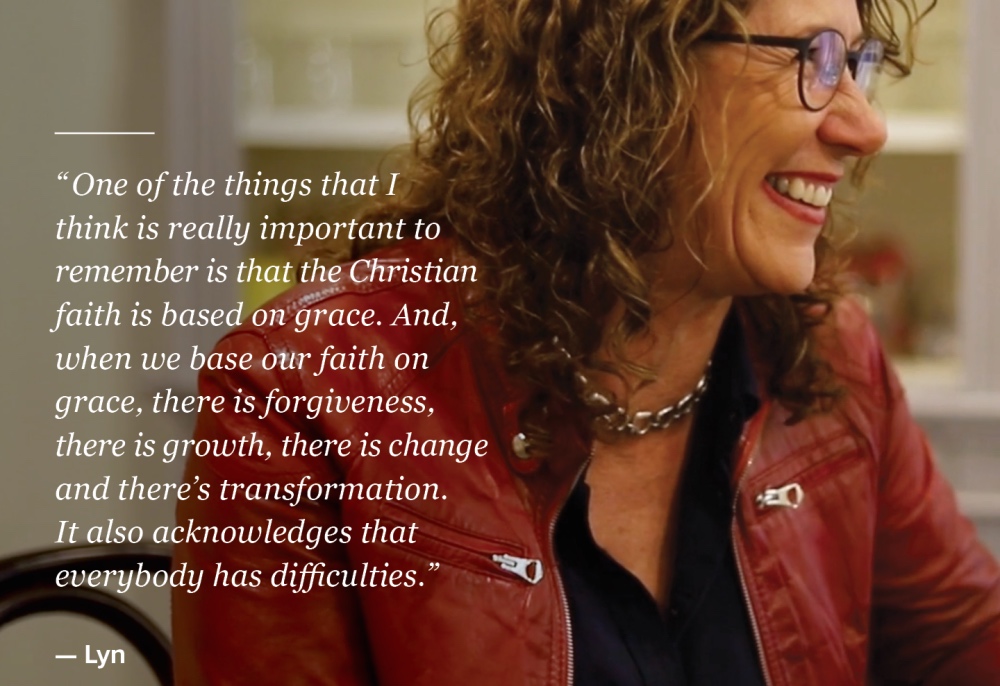
DAVID ADAMS speaks with Keith and Sarah Condie, co-directors of Sydney-based Anglican Deaconess Ministries’ Mental Health and Pastoral Care Institute, about new resources to aid churches in addressing mental health issues within and without their congregations…
With as many as one in five Australians affected by mental illness at any one time and one in two Australians affected at some point during their lifetime, the need for resources to help people engage those affected is undisputed.
Yet, while the church is an obvious place for people to turn to in their time of need, many Christians are unsure how to respond.
Anglicans Sarah Condie and her husband Rev Dr Keith Condie are aiming to change that. Co-directors of Sydney-based Anglican Deaconess Ministries’ Mental Health and Pastoral Care Institute, they’ve been working in partnership with Mary Andrews College to develop a series of free resources which are looking to help churches bridge the gap.
“I guess our aim was to try and reduce stigma and open up conversations around mental health issues,” says Sarah.

A poster for the ’10/10′ series featuring Polly who talks frankly in a video about her own struggle with eating disorders and anxiety, how isolating these can be and how her faith and church community has helped her. PICTURE: Supplied
The package of resources, which can be downloaded for free, have been released this month in conjunction with World Mental Health Day on 10th October.
The resources are centered on the 10/10 Mental Health Video Series, 10 short personal video interviews with a range of people – including those living with mental illness, carers, church ministers and health professionals – talking about their experiences with relation to mental health. According to the Condies, the videos provide a focus on what the Christian faith – and the church – has to offer people with mental health issues.
“I guess our aim was to try and reduce stigma and open up conversations around mental health issues.”
– Sarah Condie, co-director of Anglican Deaconess Ministries’ Mental Health and Pastoral Care Institute
Keith says that despite the views of some to the contrary, he believes Christians can be better at confronting the “harsh reality of life” than society in general which “tends to wanting to avoid facing up to how difficult things can really be”.
“So I think the church brings reality into this – we acknowledge this world is broken.. things are difficult and we can face up to that, we can acknowledge that…I think churches bring that,” he says.
“I think churches – or the Christian message – brings hope. We’re saying that our individual stories are actually part of a bigger story, God’s bigger story, where He is working out His grand purposes and one day, through the Gospel of Jesus Christ, everything will be put right. So there’s hope both in the sense of we believe God is actually with us in the midst of our struggles and is not distant or removed from that but there’s also that bigger picture hope of one day all will be put right.”
Keith says churches also offer community to those struggling with mental health issues.
“Probably most mental health professionals would say one of the most significant things that contributes to mental well-being is a network of supportive relationships and, when our churches function properly, we do that; we provide that sense of community,” he says.
THREE TIPS IN SUPPORTING SOMEONE STRUGGLING WITH MENTAL HEALTH
1. Listen to what they say
Put your phone away and put your focus completely upon the other person. Let them tell you how it is and use non-verbal cues to show you are fully present. Don’t start talking about yourself, but try to reflect back what they are saying in different words to let them know you are tuned in. Listening is an act of love because it focuses on the other. James commands us to be quick to listen and slow to speak (James 1:19). When interacting with those struggling with mental health, listening can be a first step in moving forward.
2. Ask if you can read God’s word and pray
They need hope. They need to be reminded that they have a God who is sovereign, all loving, all caring, all seeing and knowing and that He can hear their silent groans in that tunnel and is with them. Ask them if you can read a couple of verses from the Bible with them – share something that has recently encouraged you as a start, or a few verses from Psalms, and then ask if you can pray. Focus on who God is and how much He loves them and what He has graciously done for them. They need God’s word of comfort and consolation.
3. Seek professional help if needed
Ask them if they have seen their GP. If they haven’t, encourage them to do this and offer to help them. If you feel out of your depth, ask for help.
“And, I suppose, in a lot of communities, the church has greater diversity than most other groups and so, for someone who is struggling with their mental health, hopefully [they] can be welcomed into that church space and provided with a network of relationships that can support them and care for them and, even when life’s really hard for them, give them a sense that they’re not alone.”
Sarah says the resources don’t try and “do everything” and adds that it’s clear in a number of the interviews that some of those struggling with mental issues have obtained help from professionals as well as the church.
“I don’t think there’s anyone that says the church can do everything but there’s an acknowledgement that the two can work together…So they’re seeing their psychiatrist, their psychologist, but they’re also going to church and that encourages their Christian faith…You can see how both can contribute to helping someone.”
As well as the videos, the resources also include talking points, psalms of lament and comfort to read during services, prayers – including for those experiencing mental illness, emergency contact information and a list of Christian books and websites to explore.
They also come with a series of 10 tips aimed at helping people engage with people who are wrestling with mental health issues. They cover everything from simply sitting and listening to them through to how to set boundaries so people don’t feel overwhelmed.
“So we tried to aim at making this something that’s doable,” says Sarah.
Keith says he’s hoping the resources will help lead to a change of attitude within the church “so that people can be cared for better”. Sarah describes it as an “early intervention”.
“You start somewhere and then you’ll have people who know more about mental health things and then perhaps the church will try and upskill them or help them develop their skills in responding,” she says.

A poster from the ’10/10′ series featuring Lyn, a clinical psychologist and Christian, who believes the Christian faith and Christian communities have an enormous amount to offer in the area of mental health. PICTURE: Supplied.
The Condies are hoping to see churches start to respond to mental illness with the same sort of care and concern they often provide when someone is facing a physical illness.
“A lot of churches are really good when someone has a physical illness…” says Keith. “People cook meals, they support that person during that crisis and then it’s all over. But when it’s mental health stuff, often it’s an ongoing problem…and often unseen.”
And that care, they say, needs to extend to those who are looking after someone with mental illness as well as those affected personally.
The Condies mention a couple they met who had two children with significant mental health issues. Despite being part of a Bible study group for years, the couple had never shared the difficulties they faced with anyone.
“And there was a change of culture in the church leadership and they then realised they could share that,” says Sarah. “[They said] that was an amazing experience but it had been like this silent agony for years. And I thought that was really sad.”
~ www.mentalhealthinstitute.org.au/1010-videos
People in Australia looking for immediate help or information can call Lifeline on 13 11 14 or the Suicide Call Back Service on 1300 659 467.
Correction: The headline was corrected from ‘conservations’ to ‘conversations’ as was a quote from Sarah Condie. Apologies for any confusion caused.





